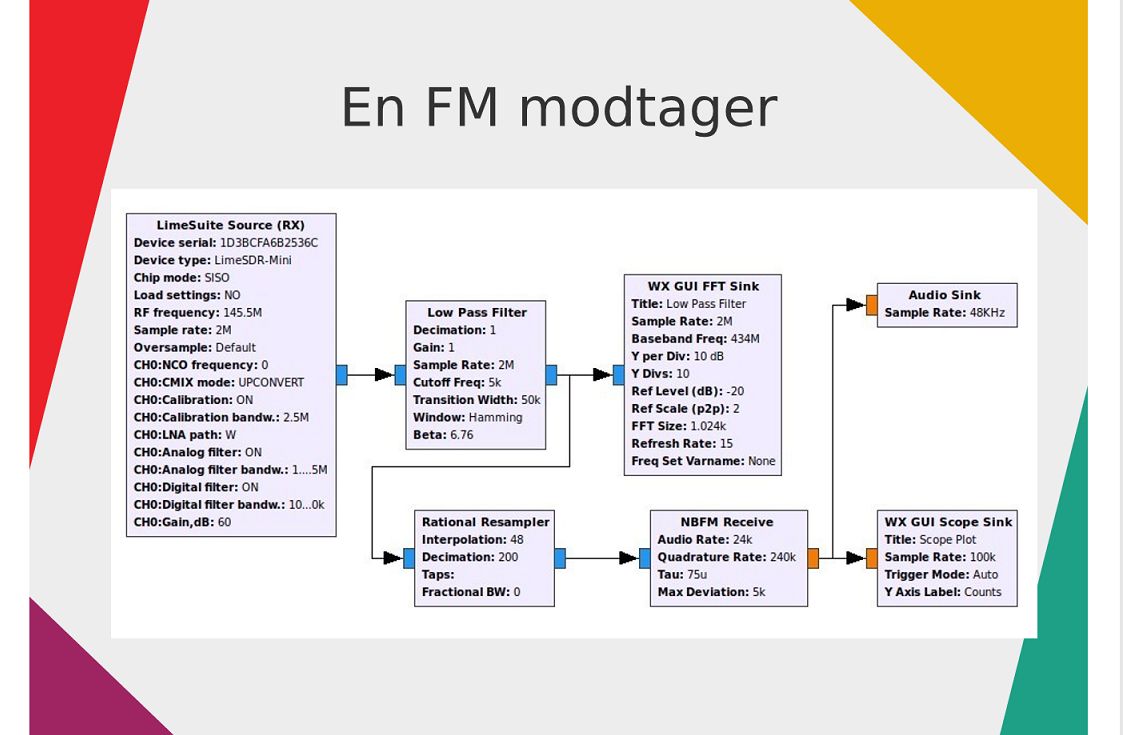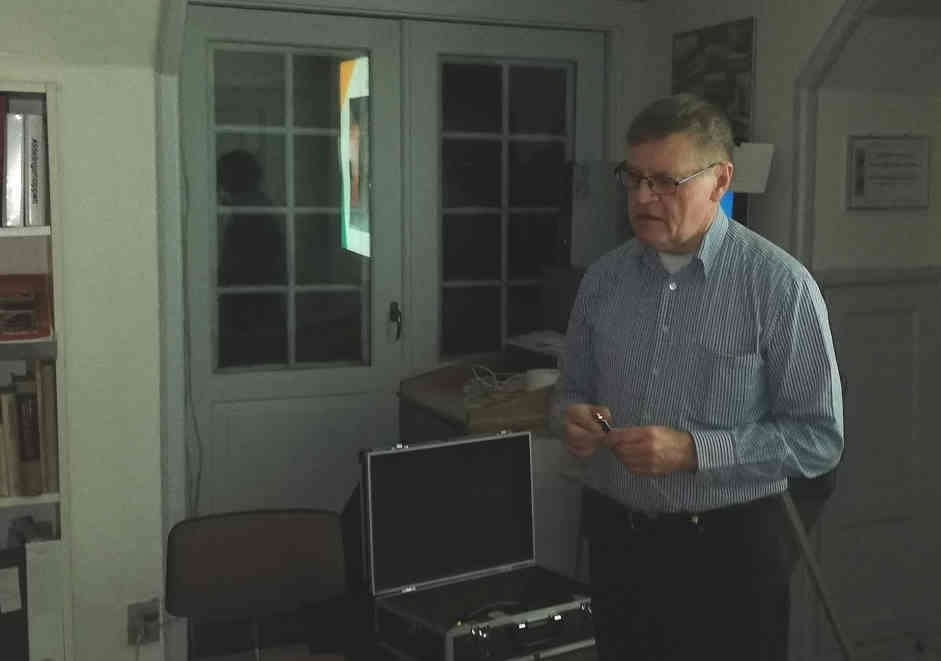SDR radio / GNU radio

What is GNU Radio and why do I want it?
GNU Radio is a free & open-source software development toolkit that provides signal processing blocks to implement software radios. It can be used with readily-available low-cost external RF hardware to create software-defined radios, or without hardware in a simulation-like environment. It is widely used in hobbyist, academic and commercial environments to support both wireless communications research and real-world radio systems.
So what exactly does GNU Radio do?
GNU Radio performs all the signal processing. You can use it to write applications to receive data out of digital streams or to push data into digital streams, which is then transmitted using hardware. GNU Radio has filters, channel codes, synchronisation elements, equalizers, demodulators, vocoders, decoders, and many other elements (in the GNU Radio jargon, we call these elements blocks) which are typically found in radio systems. More importantly, it includes a method of connecting these blocks and then manages how data is passed from one block to another. Extending GNU Radio is also quite easy; if you find a specific block that is missing, you can quickly create and add it.
Since GNU Radio is software, it can only handle digital data. Usually, complex baseband samples are the input data type for receivers and the output data type for transmitters. Analog hardware is then used to shift the signal to the desired centre frequency. That requirement aside, any data type can be passed from one block to another - be it bits, bytes, vectors, bursts or more complex data types.
GNU Radio applications are primarily written using the Python programming language, while the supplied, performance-critical signal processing path is implemented in C++ using processor floating point extensions, where available. Thus, the developer is able to implement real-time, high-throughput radio systems in a simple-to-use, rapid-application-development environment.
A more in-depth explanation is given in the core concepts tutorial.
17 januar.
Jørgen Kragh, OZ7TA holder stort foredrag i EDR Birkerød afdeling om SDR radio / GNU radio.


